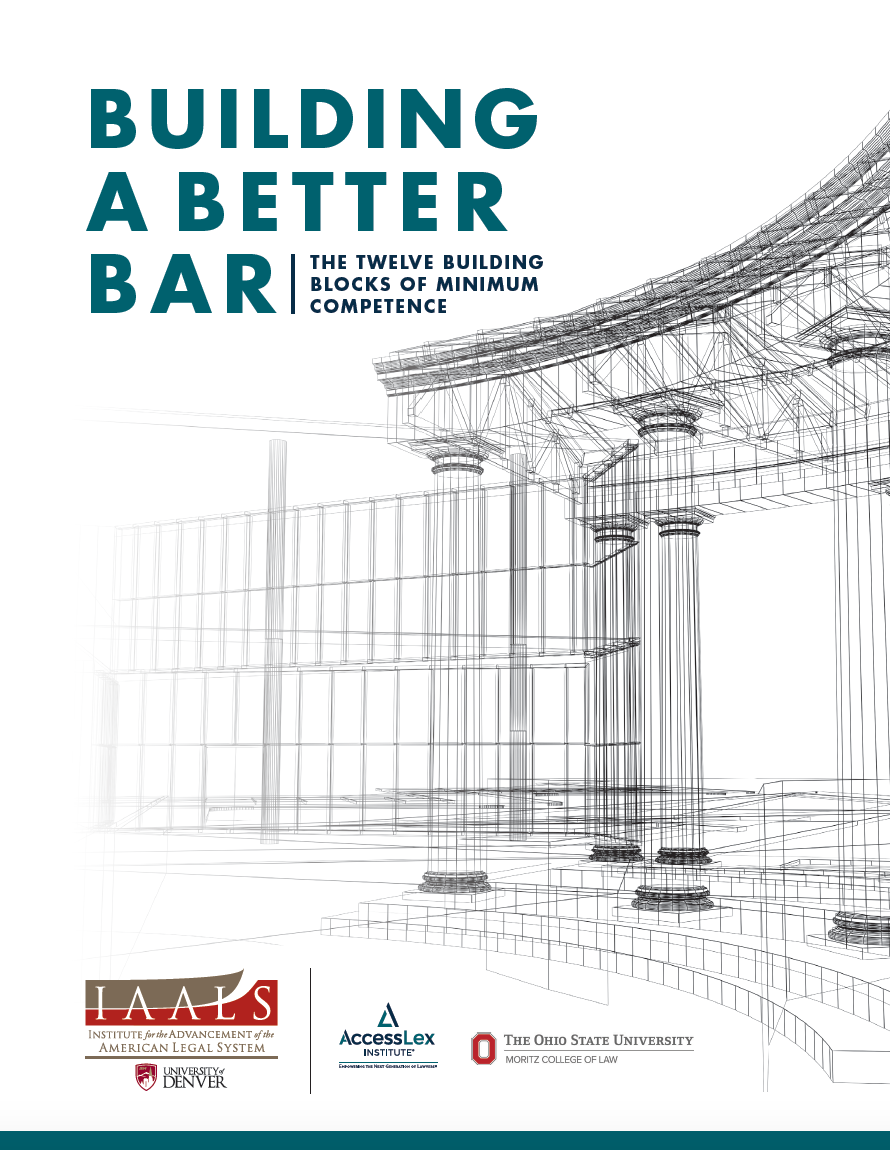Building a Better Bar
The legal profession has never had a clear, explicit understanding of the minimum competence needed to practice law and how it should be tested on the bar exam (or through other licensing approaches). In this report from our Building a Better Bar project, we have defined minimum competence and have new recommendations for how the legal licensing process—including the bar exam—must change to better serve the public.
Minimum competence consists of 12 interlocking components—or “building blocks.”
- The ability to act professionally and in accordance with the rules of professional conduct
- An understanding of legal processes and sources of law
- An understanding of threshold concepts in many subjects
- The ability to interpret legal materials
- The ability to interact effectively with clients
- The ability to identify legal issues
- The ability to conduct research
- The ability to communicate as a lawyer
- The ability to see the “big picture” of client matters
- The ability to manage a law-related workload responsibly
- The ability to cope with the stresses of legal practice
- The ability to pursue self-directed learning
Based on the data, it is also clear that exams should be open book and provide greater time to complete. Multiple choice questions bear little resemblance to the cognitive skills lawyers use and should be avoided; instead, written performance tests do in fact resemble many of the tasks that new lawyers perform and are encouraged. Additionally, practice-based assessments, such as ones based on clinical performance, offer promising avenues for evaluating minimum competence beyond the bar exam.
The report also outlines 10 recommendations that courts, law schools, bar associations, bar examiners, and other stakeholders should consider in their efforts to move towards better, evidence-based lawyer licensing.


